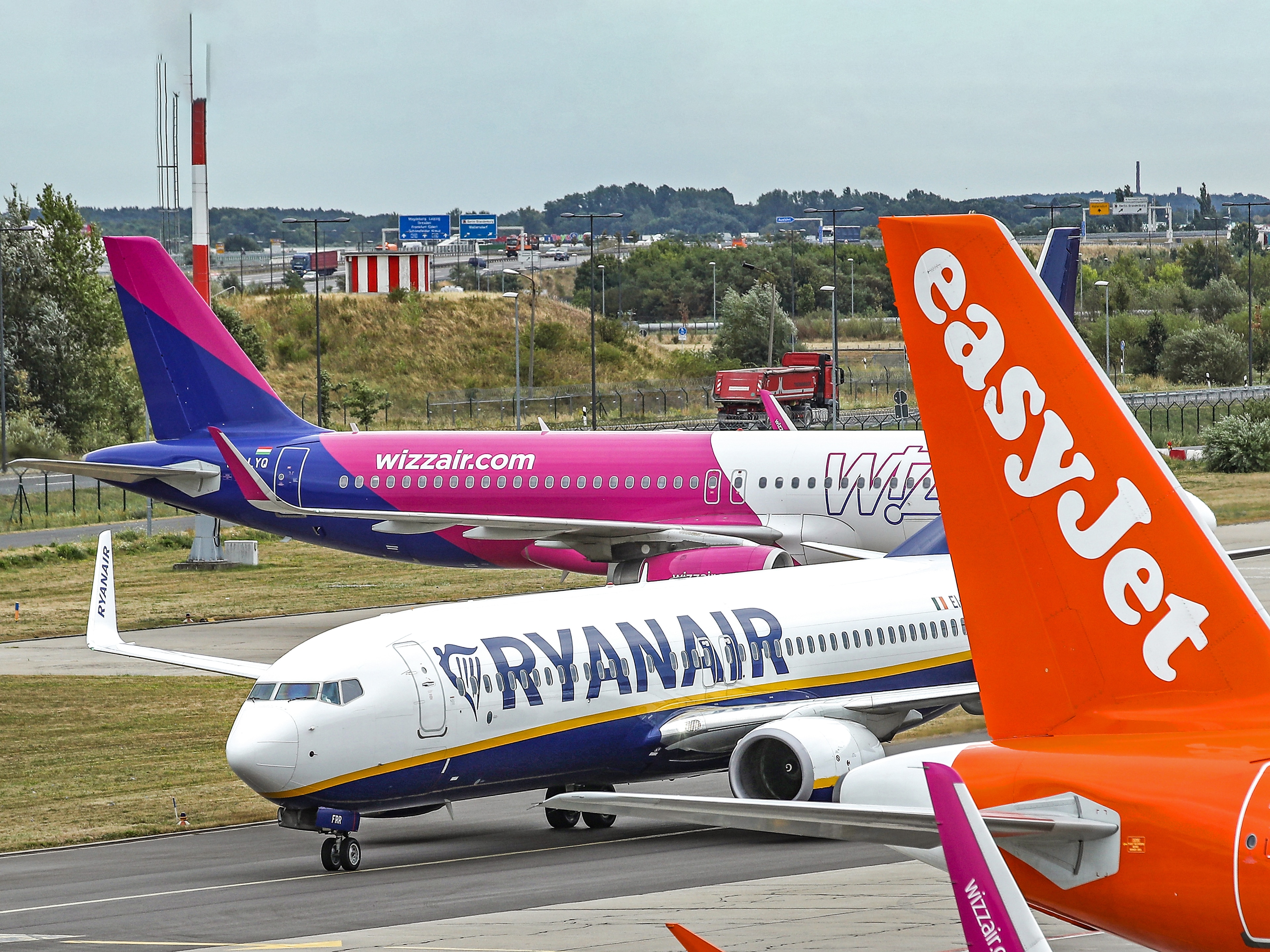The easyJet [EZJ] share price dropped by more than 11% during the week ending 10 September, following news that the carrier had rebuffed Wizz Air’s [WIZZ] takeover offer and that it would issue more cash through a rights issue.
On 13 September, the easyJet share price continued to dive, dropping a hefty 13.34% on the day the rights issued shares started trading. Not helping things were figures from Bloomberg showing that the airline industry’s debt had grown 23% since 2020 to $340bn.
$340billion
Valuation of the airline industry's debt - a 23% rise since 2020
What does this mean for the easyJet share price?
The airline industry is still feeling the effects of the coronavirus pandemic. Quarantine measures remain in place while the ongoing spread of the Delta variant could result in tougher measures coming into place. Throw in the summer season coming to an end, and the easyJet share price could be under pressure towards the end of 2022.
Ryanair’s Martin O’Leary expects that Wizz Air and easyJet should merge or risk being taken over by other carriers. Coming out of the pandemic, the Ryanair boss believes that to survive, airlines will need to scale, and Europe’s market become less fragmented.
“Consolidation needs to happen and will happen. It’s an inevitability, particularly coming out of COVID-19,” O’Leary told the Financial Times. Merging with easyJet would have provided Hungarian-based Wizz Air with an instant footprint in Western Europe.
Instead of taking the deal, easyJet plans to go it alone and is adding to its debt pile. The carrier has raised $400m in debt and announced a £1.2bn rights issue to get through what’s looking likely to be a tough winter. The rights issue would dilute the holding of the carrier’s founder Stelios Haji-Ioannou, but, as the Financial Times points out, at 410p a share, it would represent a 36% discount on the 8 September closing price.
EasyJet will use the £1.2bn pot to strengthen its position at popular airports. The Telegraph recently reported that the carrier was eyeing up British Airways landing slots at Gatwick should the UK flag carrier’s planned overhaul (i.e., cutbacks) fail to get the backing of union Unite. British Airways has warned that it will stop operating short-haul flights from Gatwick if the changes are blocked.
“As the European aviation market recovers post-COVID-19, opportunities will arise at airports within … markets, many of which are slot constrained, as legacy airlines restructure short-haul operations and regulators impose remedies in response to state aid,” easyJet said in a statement. “The rights issue will enable the group to capture these investment opportunities, to build on its current position of strength, and to deliver value-accretive growth.”
“As the European aviation market recovers post-COVID-19, opportunities will arise at airports within … markets, many of which are slot constrained, as legacy airlines restructure short-haul operations and regulators impose remedies in response to state aid. The rights issue will enable the group to capture these investment opportunities, to build on its current position of strength, and to deliver value-accretive growth” - statement from easyJet
Where next for easyJet and Wizz Air share prices?
EasyJet’s ambition to compete with the likes of British Airways means it no longer has the same low overheads as budget carrier Wizz Air. 2020 was the first year that the carrier reported a loss, however with substantial cash holdings, it is perhaps premature to think a merger with another carrier is in the offing this side of Christmas.
Wizz Air, on the other hand, is trading higher than it was before the pandemic. The carrier has used the pandemic to expand, taking on more slots to land at Gatwick and purchasing more aircraft. The Financial Times points to Goodbody analysis, saying that Wizz Air will fly more people in the final three months of the year than it did in the entirety of 2019. This could explain why Wizz Air’s share price dropped 3.9% last week - a softer descent than easyJet’s double-digit decline.
Among analysts polled by the Financial Times, easyJet has an average 894.53p price target, representing a 55.5% upside on 14 September’s close. Meanwhile, Wizz Air has a 5,114.06p average price target, which would see a 7% upside.
Disclaimer Past performance is not a reliable indicator of future results.
CMC Markets is an execution-only service provider. The material (whether or not it states any opinions) is for general information purposes only, and does not take into account your personal circumstances or objectives. Nothing in this material is (or should be considered to be) financial, investment or other advice on which reliance should be placed. No opinion given in the material constitutes a recommendation by CMC Markets or the author that any particular investment, security, transaction or investment strategy is suitable for any specific person.
The material has not been prepared in accordance with legal requirements designed to promote the independence of investment research. Although we are not specifically prevented from dealing before providing this material, we do not seek to take advantage of the material prior to its dissemination.
CMC Markets does not endorse or offer opinion on the trading strategies used by the author. Their trading strategies do not guarantee any return and CMC Markets shall not be held responsible for any loss that you may incur, either directly or indirectly, arising from any investment based on any information contained herein.
*Tax treatment depends on individual circumstances and can change or may differ in a jurisdiction other than the UK.
Continue reading for FREE
- Includes free newsletter updates, unsubscribe anytime. Privacy policy





